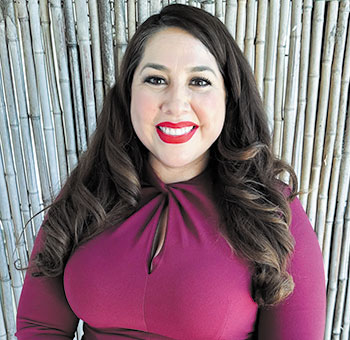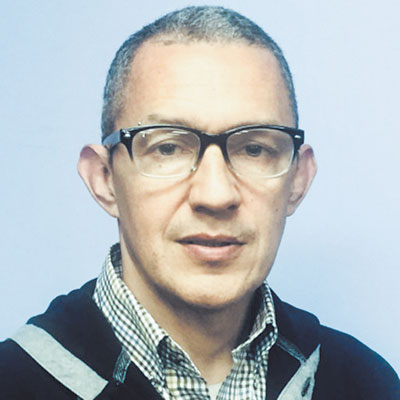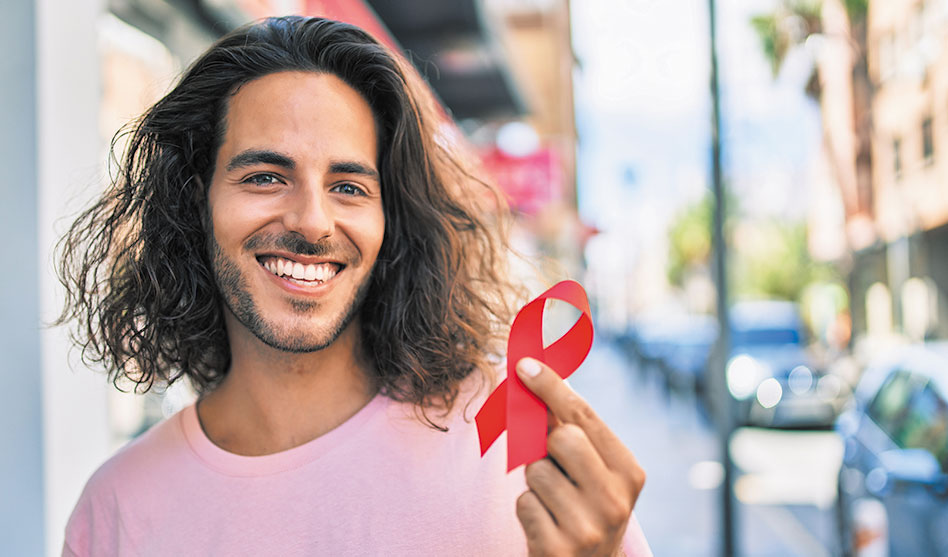Latino health advocates say there is a need for how we approach HIV care in Latinx communities
KAMILA VARGAS-GONZALEZ | Dallas Voice Intern
editor@dallasvoice.com
Experiencing unstable healthcare is not something new to West Dallas resident Javier Enriquez, especially when it comes to HIV care. The added obstacle of homophobia in his community and the fear and distrust of engaging with the system also create a harder road toward getting tested for the virus, saying, “When I first got tested, I was 25.”
Liv Mortel also experienced difficulty getting tested in the DFW suburb of Red Oak where they were raised. “[For Latine people], any sexual thing is very taboo. It’s very hush-hush,” Mortel stated. “I had to go outside of my community.”
According to the CDC, the estimated number of HIV cases in the United States had a 12 percent decrease between the years 2018 and 2022. However, in 2022, HIV diagnoses increased by 17 percent amongst Hispanic/Latinos.

Natalie Sanchez
And in 2021, the Dallas County Health and Human Services reported a 30 percent increase in male cases and a 6.5 percent increase in female cases.
“What we are looking at is the intersection of many different issues happening at the same time,” Daniel Castellanos, vice president of Research and Innovation at the Latino Commission on AIDS, said. “There are some areas, like in the South, and Texas in particular, where there are [multiple] factors happening.”
The Southern and Western states account for 73.8 percent of the HIV cases among U.S. Hispanics in 2021, according to the Latino Commission of AIDS at the Institute for Latino Health Equity.
“We underfund prevention in this country,” Evelio Salinas Escamilla, a senior research associate at the Latino Commission on AIDS, states. “Access to getting screened for these types of services is seldom, so you never get to really find out what you’re experiencing or having symptoms for until it’s a little too late.”
According to a KFF analysis, only 3 percent of $43 billion United States federal funding for HIV in 2022 went to prevention.
“What needs to happen is funding has to be flexible enough that communities themselves can develop their own strategies and can make decisions about how to address their needs based on their demographics, based on the availability of services and the availability of providers,” Castellano states. “Funding needs to be distributed in a way that takes into consideration the context.”
Health advocates seek consistent and redistributed funding and accessibility for the diverse Latino communities for HIV care to be easily accessible.
In 2014, Prism Health North Texas developed and implemented Viviendo Valiente, a program based in Dallas that aimed to reduce HIV disparities in the Latino community, with a focus on those who were of Mexican descent. The program connected people to HIV and STI care, healthcare education and health literacy in individual, group or community-level interventions.
The program was supported by the Ryan White HIV/AIDS Program, Special Projects of National Significance (SPNS) Culturally Appropriate Interventions of Outreach, Access, and Retention Among Latino/a Populations Initiative. The program provided $1,489,500 to be awarded between the years 2013 through 2019 at 10 different sites across the United States.
“Being able to provide that culturally and linguistically appropriate care and service is important,” Fernie Sanchez, clinic case manager supervisor for Prism Health North Texas, said. “[The fact that] what works for one population may not work with another is something that we’ve really focused on here at Prism Health North Texas.”
According to Target HIV, at the individual level, 74 percent of those who participated in the program were kept in HIV care within a year, and at the community level, HIV testing among Latinos increased from 444 clients in 2014 to 721 in 2017.
“We get funding to do a special project, and then the funding goes away, and the emphasis diminishes,” Sanchez states. “Being consistent in our messaging and keeping it out there — we have to keep a presence and remind folks that HIV is still out there.”

Daniel Castellanos
The program may have stopped operating after 2019, but Sanchez notes that what Prism Health North Texas has learned from Viviendo Valiente isn’t gone.
Prism Health North Texas offers prevention services, like HIV/STI testing, Pre-Exposure Prophylaxis medication and free condoms at any of their four locations: Oaklawn Health Center at 2801 Lemmon Ave. #200; Oak Cliff Health Center at 219 Sunset Ave. #116-A; South Dallas Health Center at 4922 Spring Ave.; and Worth Street Health Center at 4004 Worth St. #200.
Outreach in Latino communities persists in other ways. Natalie Sanchez, director of UCLA Los Angeles Family AIDS Network, has set out to create multilanguage online outreach for Latino communities to interact with. Sanchez’s most well-known work is Sin Vergünza, a telenovela web series that addresses HIV in Latino families, which reflects the stories of patients she has worked with in clinics. She wrote, created, and is the executive producer of the series.
“We developed the series with the intent of making it entertaining, making it relatable, and … communicating what we see in clinics to those who are watching the series,” Natalie Sanchez said.
“Because of my recent work in working with women in HIV, I have a team, and we have a podcast called Confessions, HIV-positive Women — some are done in English, and some are done in Spanish, [and] our third season will be an all Spanish-[speaking] season.”
Through the years, the Latino community continuously responds to programs and outreach that are culturally compelling, readily available and easily accessible to them. “Being able to make inroads of genuine trust with marginalized communities takes a lot of investment and consistency,” Enriquez said.
For more information on the Latino Commission on AIDS, visit LatinoAIDS.org; for more information on Prism Health North Texas, visit phntx.org; for more information on Viviendo Valiente, visit Targethiv.org; to listen to Confession, HIV+ Women, visit Confessionshiv.buzzsprout.com; to watch Sin Vergüenza, visit Altamed.org.


